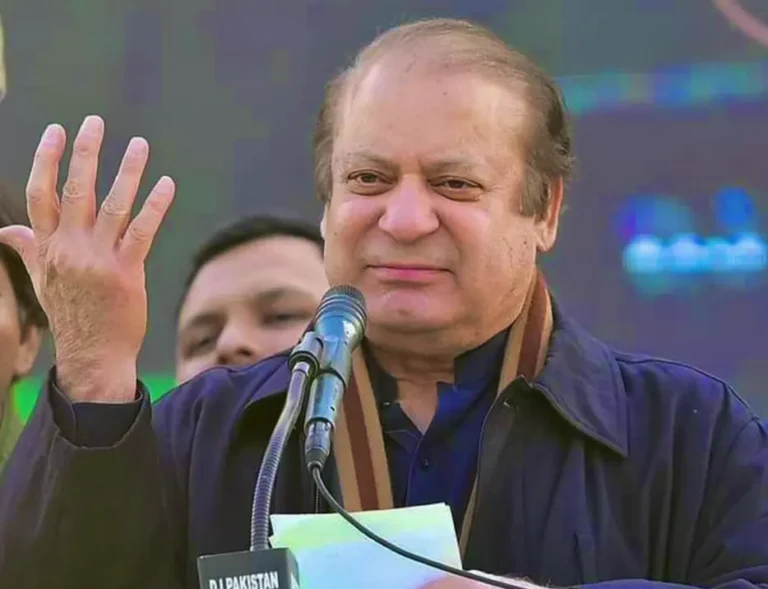Lahore: Nawaz Sharif was on Tuesday re-elected “unopposed” as leader of the ruling Pakistan Muslim League-Nawaz (PML-N) party, six years after the three-time prime minister was forced to step down following the Supreme Court verdict in the Panama Papers scandal.
The 74-year-old veteran politician, who returned to Pakistan in October last year after four years in self-imposed exile in Britain, was elected unopposed at his party’s general conference here.
PML-N election commissioner Rana Sanaullah told the general meeting that Nawaz was the only one nominated for the party’s leadership position.
Sanaullah sought approval from council members who stood to ratify his nomination, shouting slogans in support of him.
The meeting also passed a resolution calling for action against those involved in toppling Nawaz’s government in 2017 – army generals and judges – and expressed solidarity with the Palestinian and Kashmiri people.
Nawaz, the only politician to have been prime minister a record three times in coup-prone Pakistan, took over the reins of the party from his brother, Prime Minister Shehbaz Sharif, six years after he lost the leadership following a Supreme Court ruling in the Panama Papers corruption case.
Nawaz was removed from his position as party leader in 2018 after the Supreme Court, led by then Chief Justice Mian Saqib Nisar, ruled that a person disqualified under Articles 62 and 63 of the Constitution cannot lead a political party. The ruling came just months after Nawaz was disqualified for life by the Supreme Court in a Panama Papers-related corruption case.
The same day, the party released a video showing preparations for the general meeting, saying “Mr Lion will be restored to his rightful position at the top.”
“They keep removing Quaid Muhammad Nawaz Sharif and the people keep bringing him back. Mian cannot be removed from the hearts of the people,” the party said in a post on X after Sharif’s re-election.
The PML-N had announced that it would convene its general meeting on May 11, but it was postponed to coincide with the 26th anniversary of Pakistan becoming a nuclear power.
Nawaz was prime minister when Pakistan conducted its nuclear test on May 28, 1998.
He returned from London in October last year, ending four years of self-imposed exile after being acquitted by the Islamabad High Court in two major corruption cases – Avenfield and Al Azizia. He was serving a seven-year sentence in Lahore’s Kot Lakhpat Jail in the Al Azizia Mills corruption case, after which he was allowed to leave for four weeks to the UK on health grounds.
The final hurdle to the president’s re-election was removed in January this year when the Supreme Court overturned the life disqualification of members of Parliament under Article 62(1)(f) of the Constitution.
Nawaz has kept a low profile since his party failed to win a majority in the February 8 general election, but has been seen chairing Punjab government meetings and issuing instructions to bureaucrats and ministers in recent days. His daughter Maryam Nawaz is the province’s chief minister.
Shehbaz had resigned as PML-N leader earlier this month after he and his brother Nawaz Sharif were unfairly disqualified from the Prime Minister’s Office.
Shehbaz, 72, said the time has come for Nawaz to “restore his rightful position as leader of the Pakistan Muslim League-Nawaz Party.”
With divided support, the PML-N failed to win a clear majority in the February 8 general election. After Nawaz stepped down as prime minister and Shehbaz became prime minister, the PML-N joined forces with Bilawal Zardari Bhutto’s Pakistan People’s Party (PPP) and other smaller parties to form a government at the federal level.

